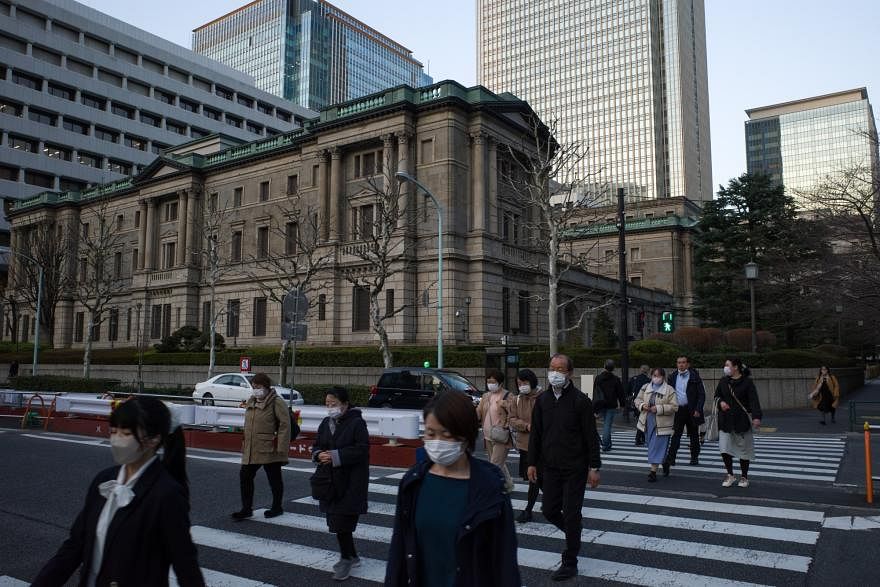A SLIM majority of Bank of Japan (BOJ) watchers still expect the end of negative rates to come in April, but almost everyone agrees there’s a risk the move could come next week, according to a Bloomberg survey.
The proportion of 50 economists forecasting the BOJ will end the world’s last negative rate in April slipped to 54 per cent in the latest survey from 59 per cent in January. Some 38 per cent expect the move next week, a big jump compared with only 8 per cent who predicted a March move in the previous poll. Whatever their predictions, some 90 per cent agree there’s a risk of an imminent hike.
The change in perceptions comes after a series of speeches in which BOJ officials hinted at change, and economic data that pointed to progress towards achieving the bank’s price goal. A key overarching factor is spring wage talks that will culminate with the results of deals on Friday (Mar 15).
Governor Kazuo Ueda has repeatedly highlighted the importance of the wage talks, and anecdotal evidence indicates growing momentum on pay. The Japanese Trade Union Confederation, known as Rengo, said its affiliated unions demanded an average wage increase of 5.85 per cent this year versus 4.49 per cent a year ago, when the process ultimately resulted in the biggest gains in decades.
“I expect the BOJ to adjust policy at the March meeting by stating that the stable inflation target has come into sight,” Takeshi Yamaguchi, chief Japan economist at Morgan Stanley MUFG Securities, wrote in the survey.
Meanwhile, many of those forecasting the move in April noted there would be more data and information available ahead of the Apr 25 to 26 gathering. The new input will include the BOJ’s Tankan business survey and feedback from branch managers about conditions in the regions. The bank will also release a quarterly economic projection that would allow a deeper discussion over the prospects for longer-term inflation.
“There is a risk of fuelling speculation over an early additional tightening if they scrap the subzero rate in March,” said Shinichiro Kobayashi, chief economist at Mitsubishi UFJ Research & Consulting. “Confusion will be contained at a minimum level if they do it in April.”
Market bets on a near-term move increased after revised economic data released on Monday showed that the economy avoided a technical recession in the final quarter of last year thanks to upward revisions to capital spending data. That is seen as making it easier for the BOJ to justify a hike, with strong results from wage talks adding to the case to proceed.
Overall wages will rise by 4.1 per cent, according to the median estimate of the economists, exceeding last year’s jump to 3.6 per cent, which was the most since 1993. The BOJ at least needs the outcome of 3.8 per cent to proceed with a rate hike, according to the median view in the survey. BLOOMBERG




